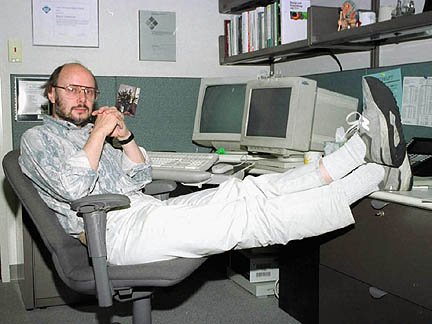Bjarne Stroustrup
Bjarne Stroustrup is a computer scientist and the College of Engineering Chair Professor of Computer Science at Texas A&M University. He is most notable for developing the C++ programming language. Stroustrup also wrote what many consider to be the standard text for the language, The C++ Programming Language, which is now in its third edition.
Management
I came across the name Bjarne Stroustrup while I was learning to develop C++ and using his book The C++ Programming Language (Second Edition). One of the most interesting sections of the book is Chapter 11, Design and Development. The sub-section entitled Management was a real gem, filled with statements that are perfectly obvious once you think about it. Although his words are geared towards a programming environment, much of what he writes has general application.
In the following excerpts a few sentences have been altered slightly to maintain the original meaning.
Provided it makes some minimum of sense, most people do what they are encouraged to do. (page 382).
On re-use of code: Most organizations reward individuals and groups that choose to re-invent the wheel. (page 382).
An organization that treats its programmers as morons will soon have programmers that are willing and able to act like morons only. (page 382).
If an organization has no mechanism for promoting and rewarding cooperation and sharing, cooperation and sharing will be rare. (page 383).
Common sense can be the first victim of a genuine and often ardent desire to improve the way things are done. Unfortunately, once common sense is missing there is no limit to the damage that can unwittingly be done. (page 384).
Managers often forget that organizations consist of individuals. A popular notion is that programmers are equal and interchangeable. This is a fallacy that can destroy an organization by driving out many of the most effective individuals. Individuals are interchangeable only if they are not allowed to take advantage of skills that raise them above the absolute minimum required for the task in question. (page 385).
Quality is far harder to measure than quantity of output, yet individuals and groups must be rewarded based on the quality of their output rather than by crude quantity measures. (page 386).
It is essentially impossible to judge the performance of an individual on the basis of a single year’s work. (page 386).
Naturally, there is often a fear of change among individuals. This can lead to an overestimate of the problems involved in a change and a reluctance to acknowledge problems with the old ways of doing things. Equally naturally, people arguing for change tend to overestimate the beneficial effects of new ways of doing things and to underestimate the problems involved in the change. (page 387).

